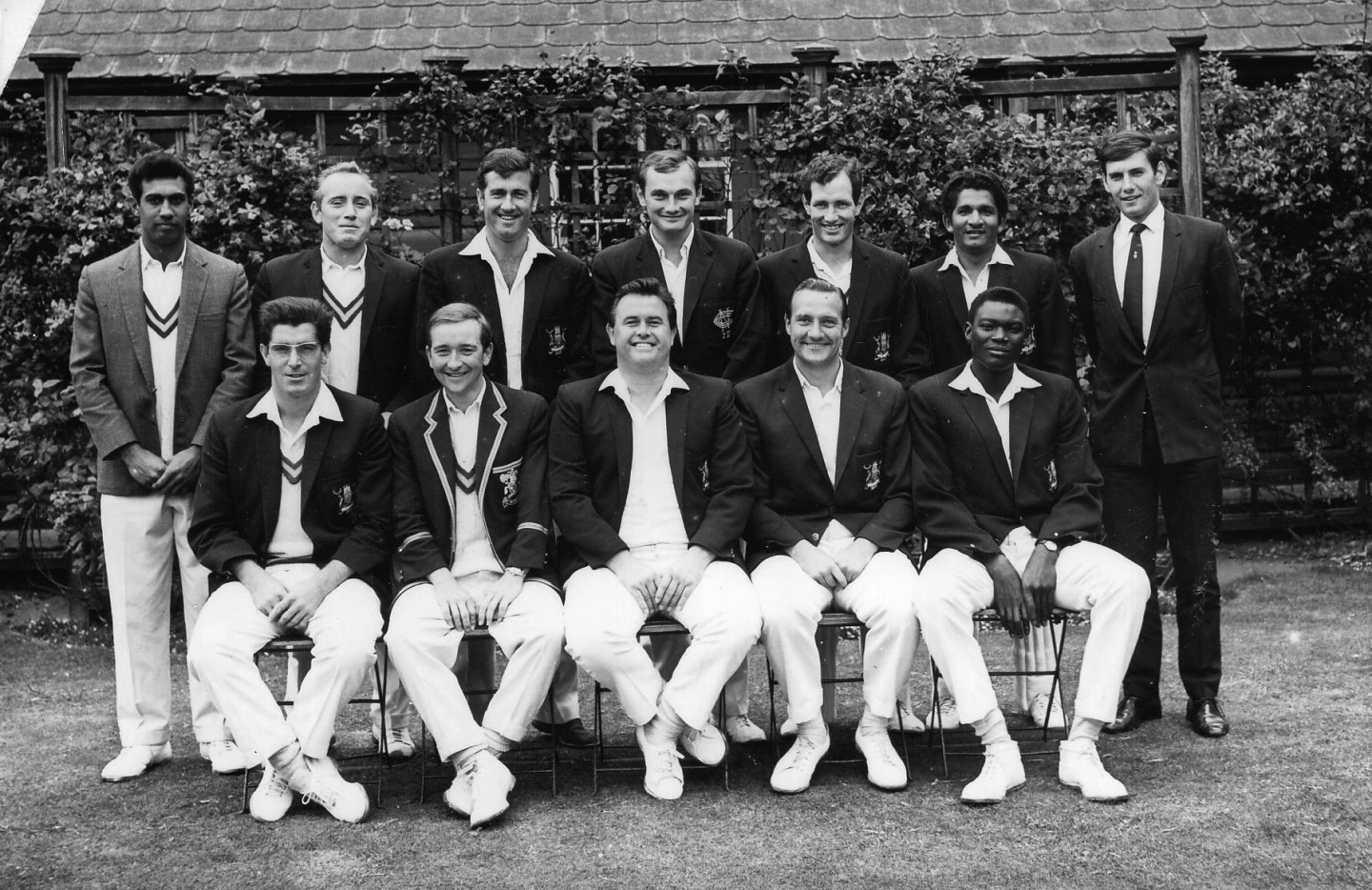1967 season
Championship – 16th
Gillette Cup (60 overs) – Second Round
Captain – N W Hill
After finishing bottom in 1965 and 1966, Notts hit a new low as for the first time in their history they did not win a single first-class match. Their record - played 30, drawn 26 and lost 4 - included draws against the Cambridge Students and the Indian tourists. By some freak of the points system, the county did not end at foot of the table; Gloucestershire, with three wins, took the wooden spoon. In some respects Notts were distinctly unlucky, for in four games - against Kent at Trent Bridge in the opening fixture, the two clashes against Worcestershire and against Northamptonshire at Worksop - they achieved almost unassailable command when the weather intervened and robbed them of potential of victory.
The batting was relatively strong and produced more runs than in recent years, hence the high percentage of drawn fixtures. Four players gathered more than 1,000 championship runs. Brian Bolus, with 1,760 runs @38.26, had the highest aggregate and became one of the most prolific batsmen in the country, as he was in 1963. The ever improving Mike Smedley scored 1,443 runs @36.07; Deryck Murray played all season and scored 1,145 runs @30.13 and skipper Norman Hill 1,021 runs @27.59. Basharat Hassan had his first taste of the championship action. His unorthodox crouched stance at the wicket created comment, but he scored 579 @27.57 in 16 matches. Once again the experienced Roy Swetman kept wicket competently, but his failure as a middle-order batsman (595 runs @17.00) was a disappointment. The highlight of Ian Moore’s season was his 206 not out against the Indians, but his figures in the championship were disappointing, 667 runs @24.70.
The bowling attack lacked variety and penetration, The leading bowlers were left-arm medium pacer Carlton Forbes with 107 wickets @20.32 and the steady Mike Taylor, who was awarded his county cap midway through the season, and worked hard as the stock bowler with 78 wickets @23.51. He also scored 508 runs @19.53 including a maiden first-class century (105) v Lancashire at Trent Bridge. Stead was a wholehearted trier and deserved his 55 wickets @29.23. The absence of spin handicapped Notts severely. Peter Watts, the leg-spinner signed on a special registration from Northants, accomplished little (23 wickets @50.08) and was eventually dropped from the side. This meant, Bob White, the off-spinner, was the only slow bowler available and although he toiled for long periods he only captured 44 wickets @30.20 wickets.
Apart from Watts, there two first-class debutants during the season, Richard Bielby made his debut in the rain-hit game at Fenner’s, but the right-hander did not come to the crease. Graham Frost, a right-hand bat, played against the Indians and scored 7 and 0
Notts opened the season on 23 April with a Gillette Cup first round tie at Ropery Lane, Chester-le-Street. There was nearly an upset as Minor County Durham, chasing the Notts total of 191-7 were at one stage 168-6. However, Hassan on his List A debut took 3-20 with his rarely used right-arm medium pace to help induce a collapse as Durham were 180 all out and fell 11 runs short. Earlier Stead had taken 3-17 to dismiss Durham’s top order. Three weeks later, Northants beat Notts by four wickets at Wantage Road, Northampton. Murray made 53 as Notts were 203 all out but an innings of 68 from Pakistani Mushtaq Mohammad and 54 from David Steele were the main contributors as Northants got home with six overs to spare.
At the end of the season, the seam bowlers John Howarth and Alec Johnson, who had figured in the first eleven were released.
The Dixon Hall at Trent Bridge, which had been used for members’ lunches, was converted by the Supporters’ Association for its use, who also gave £15,000 to the County Club, but there was still a loss of £2,837. The Test Match at Trent Bridge against Pakistan was perhaps the dullest played in Nottingham since the war. The whole of Monday was washed out and about 12 hours lost in all, but England won by 10 wickets. Barrington scored a painfully slow 100 – the English scoring rate whilst he was in was 32 runs per hour.
April 2020
